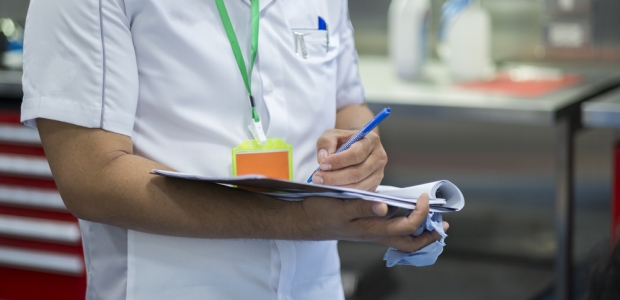
Michigan Agencies Making Food Safety Inspections
"A seamless food safety regulatory system that involves many regulatory layers on the federal, state and local levels is key to preventing foodborne illness and protecting public health," McDowell said. "We hope our federal partners are back to business as usual soon, which will bring all food safety efforts up to full capacity."
Food inspectors from the Michigan Department of Agriculture and Rural Development and food sanitarians from Michigan's 45 local health departments have continued to conduct food safety inspections since the federal government's partial shutdown began Dec. 22, 2018, the department reported Jan. 16. Some services and duties of federal agencies, including the U.S Food and Drug Administration and the U.S. Department of Agriculture, have been curtailed during the shutdown.
"Ensuring the safety of the state's food supply is paramount to protecting public health and helping to grow Michigan's $104.7 billion food and agriculture economy," said Gary McDowell, MDARD's director. "Although food safety programs are not at full capacity on the federal level, MDARD food inspectors and food sanitarians from Michigan's local health departments are on the front lines across Michigan every day to maintain the high-level of confidence in the safety of the state’s food supply."
MDARD and local health departments respond to all complaints and conduct routine, risk-based inspections every day to help ensure our food supply is safe. They also partner with the Michigan Department of Health and Human Services and public health officials at the local level to identify and respond to foodborne illness outbreaks and conduct recalls when food products are identified as a potential source of foodborne illness. MDARD inspects grocery stores and other food establishments and processing facilities and wholesale food operations; local health departments inspect restaurants, cafeterias, and other food service operations at schools and hospitals in the state.
"Local health departments, along with MDARD, are the boots on the ground every day to make sure the food served at Michigan restaurants, school lunch rooms, and hospitals is safe and wholesome," said Meghan Swain, executive director of the Michigan Association for Local Public Health. "We are proud of the role we play as an integral part of Michigan's food safety assurance system."
"A seamless food safety regulatory system that involves many regulatory layers on the federal, state and local levels is key to preventing foodborne illness and protecting public health," McDowell said. "We hope our federal partners are back to business as usual soon, which will bring all food safety efforts up to full capacity."